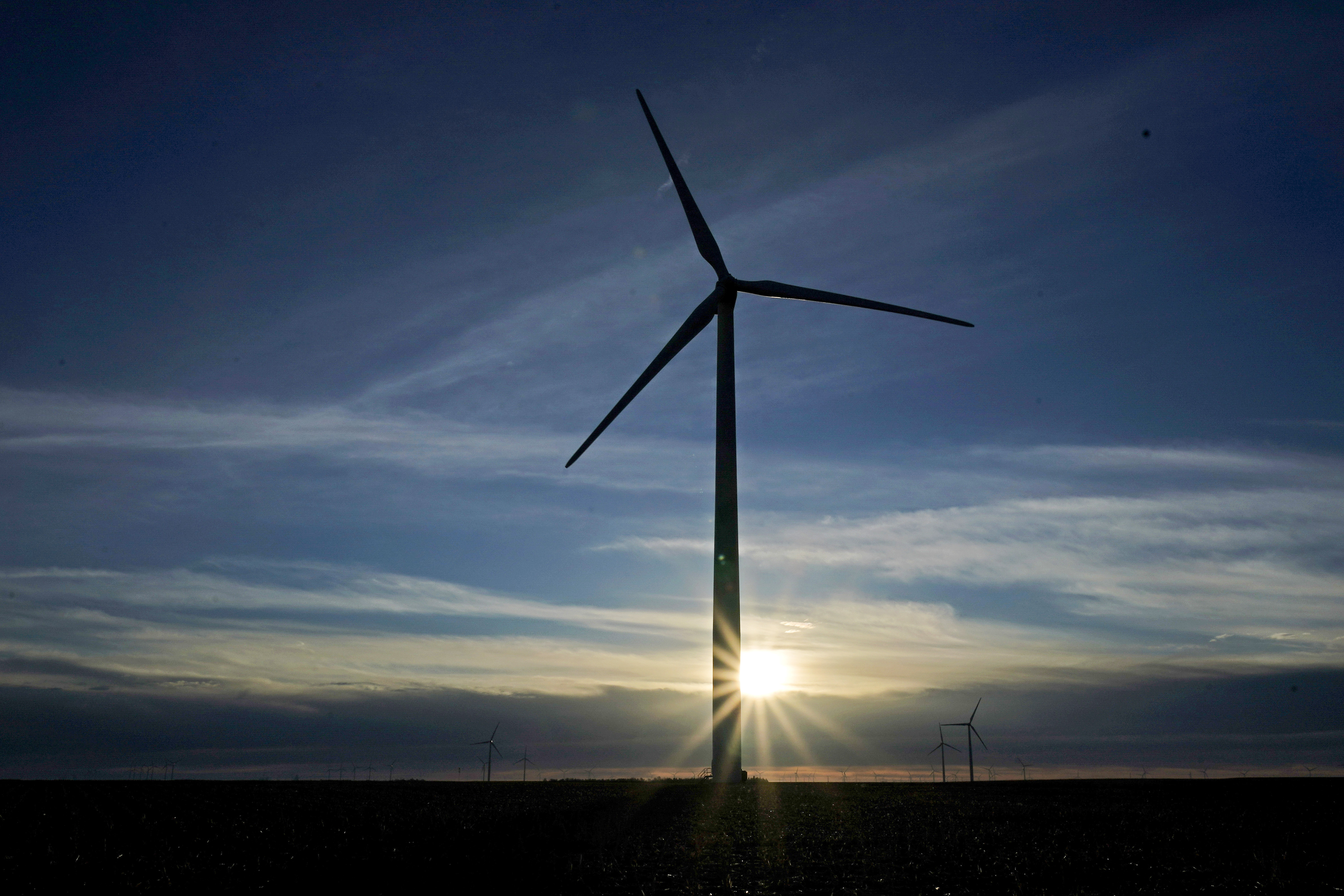
By Joey Cappelletti, Associated Press
LANSING, Mich. (AP) — Michigan is on the verge of implementing one of the nation’s most ambitious clean energy mandates, aiming to be carbon-free by 2040 in what is a pivotal test of the Democrats’ environmental goals in a state with a long-standing manufacturing legacy.
Michigan will join four other states in requiring utility providers to transition to 100% carbon-free energy generation by 2040 under legislation that will soon be signed by Gov. Gretchen Whitmer The state has also set a goal for utilities to generate 50% of their energy from renewable sources by 2030, a significant leap from the current 12%.
The state-level mandates support the Biden administration’s goals of a carbon pollution-free electricity sector by 2035 and a net-zero emissions economy by no later than 2050.
The clean energy package, which was approved by Democrats in the Michigan Legislature this month, has been lauded by environmental groups. Lisa Wozniak, executive director of the Michigan League of Conservation Voters, said she hopes Michigan’s plan serves as a model for other states.
“Michigan is at the heart of the industrial Midwest. What happens here sets the tone for what could happen all across this country,” Wozniak said.
Michigan ranked 11th in electricity consumption nationwide in 2021, with a majority of it coming from coal, natural gas and motor gasoline. Of the 12% produced through renewable sources last year, most came from winds that sweep across the Great Lakes.
A resource that naturally replenishes over time and is derived from solar, water or wind power is considered renewable. Under the package, clean energy includes renewable sources along with nuclear energy and natural gas. Natural gas can be used only if utilities capture and store the carbon emissions.
Meeting the 50% renewable energy goal by 2030, and 60% five years later, will require a massive buildout of utility-scale renewable energy resources in Michigan.
Just over 17,000 acres (6,880 hectares) of land in the state are currently used for wind and solar generation, according to Dan Scripps, chairman of the Michigan Public Service Commission. Scripps told lawmakers during a Nov. 7 committee hearing that an additional 209,000 acres (84,579 hectares) of land will be needed for projects to hit the 60% renewable energy goal.
To achieve this, Michigan lawmakers plan to give the state’s Public Service Commission the authority to supersede local governments for the approval of these large projects.
The provision has quickly become the package’s most contentious element. A local government coalition, including the Michigan Association of Counties, has strongly opposed it, with the Michigan Township Association arguing it stifles the input of local officials and residents in communities where these facilities are set to operate for the next several decades.
Public reaction to the Democrats’ ambitious energy plan could have wide-reaching implications for the party in 2024. Michigan was a critical component of the Democrats’ “blue wall” that also includes Wisconsin and Pennsylvania and that helped Joe Biden win the White House in 2020.
The clean energy plan became possible only after Michigan Democrats last year flipped both chambers of the Legislature while holding power in the governor’s office to win full control of state government for the first time in four decades.
The package will also increase energy efficiency requirements and raise the cap on rooftop solar from 1% to 10% of each utility’s five-year average peak load.
Connecticut, New York, Oregon and Minnesota all share Michigan’s timeline of being carbon-free by 2040 while Rhode Island has set a goal of using 100% renewable energy by 2033, according to the Clean Energy States Alliance.
Questions linger about how well the mandates will work and whether states will stick to the timelines. Michigan’s legislation includes a provision that allows for extensions on the requirements if “good cause” is shown.
Catch more news at Great Lakes Now:
Keeping an eye on Michigan’s current environmental legislation
‘Solar grazing’ is a way for farmers and solar companies to use land. But there are challenges
Featured image: In this Jan. 13, 2021, file photo a wind turbine is silhouetted against the rising sun Wednesday, Jan. 13, 2021, near Spearville, Kan. Recent detailed scientific studies show that because of dropping wind, solar and battery prices, President Joe Biden’s net-zero carbon goal can be accomplished far cheaper than feared in the past and with health benefits “many, many times” outweighing the costs, said Princeton University ecologist Stephen Pacala, who was part of one study at Princeton. (AP Photo/Charlie Riedel, File)





